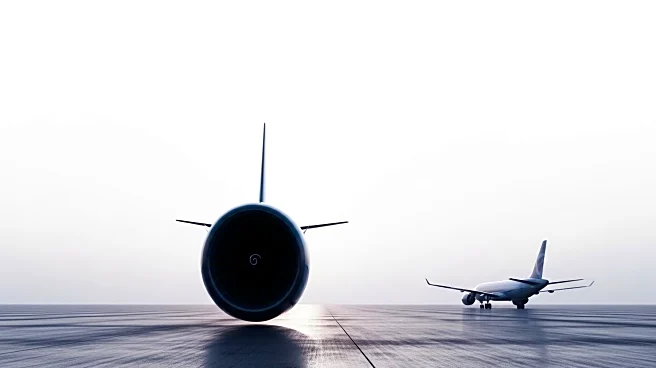What's Happening?
Air New Zealand is experiencing significant financial impacts due to ongoing engine reliability issues affecting its fleet. The airline has disclosed that it expects between nine and ten jets to be grounded in the first half of 2026, slightly easing from current estimates of up to eleven aircraft. The issues stem from problems with Pratt & Whitney PW1100G engines on Airbus narrowbodies and Rolls-Royce Trent 1000 engines on Boeing 787s. Despite receiving NZ$129 million in compensation, the airline continues to face substantial costs, with groundings costing between NZ$280 and NZ$320 million for the year ended June 30. Air New Zealand is working closely with engine manufacturers to secure further compensation and improve maintenance timelines.
Why It's Important?
The ongoing engine issues have significant implications for Air New Zealand's financial performance and operational capacity. The airline's pre-tax profit for the year was down 15% to NZ$189 million, highlighting the economic strain caused by the groundings. This situation underscores the broader challenges faced by airlines in managing fleet reliability and maintenance costs, which can impact service delivery and profitability. The compensation received, while substantial, does not fully offset the financial losses incurred, indicating the need for strategic management and collaboration with manufacturers to mitigate future risks.
What's Next?
Air New Zealand is taking steps to address the capacity shortfall by securing additional leases on Pratt & Whitney engines and acquiring two A321neos. The airline remains focused on navigating the next two years with discipline and strategic planning, as it anticipates continued constraints. The collaboration with engine manufacturers is crucial in developing a reliable maintenance schedule and securing further compensation arrangements. Stakeholders, including passengers and investors, will be closely monitoring the airline's recovery efforts and operational adjustments.









